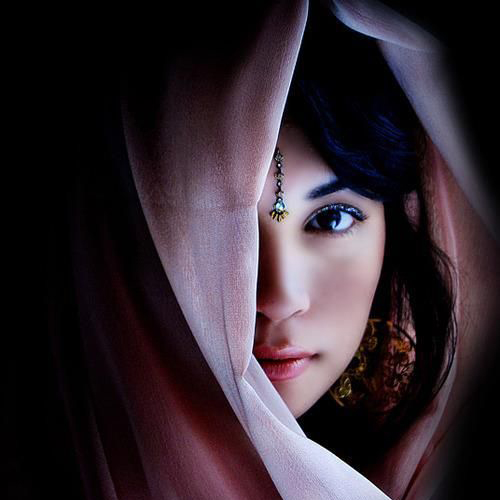FWP:
CURLS: {9,2}; {14,6}; {19,6}; {36,4}; {71,2}; {81,7x}; {83,2}; {88,2}; {108,13x}; {111,8}; {162,6}; {164,10}; {176,5}; {192,5}; {194,5}; {204,2}; {204,8}; {207,4}; {211,6x}; {214,2}; {219,4}; {227,5x}; {228,1}; {233,12} // {255x,8}; {257x,6}; {261x,4}; {261x,5}; {261x,6}; {277x,7}; {282x,4}; {284x,2}; {284x,3}; {294x,3}; {295x,2}; {295x,4}; {304x,6}; {306x,2}; {309x,1}; {310x,4}; {322x,1}; {347x,3}, 'curl of thought'; {373x,1}, maddening; {404x,2}; {408x,2}; {411x,6}; {417x,3}; {418x,1}; {425x,1}; {425x,2}; {430x,7}; {434x,4}*; {440x,4}
ABOUT CURLS: The beloved in the ghazal world always has long black 'curls', and extensive use is made of them: to the lover, they can be bonds, fetters, serpents, etc. After all these years of taking the beloved's black curls for granted, it only struck me recently (Jan. 2009) how few North Indian (and Pakistani) women actually have extremely curly hair like this. Moreover, in Ghalib's day, even women who did have curly hair didn't wear it in curls. Women traditionally wore their hair as long as possible, and preferably never cut it at all. They pulled it into a tight braid or pinned it up in careful arrangements, and also regularly oiled it. These practices made even curly hair appear straight (as some of my curly-haired students have pointed out to me). Yet I can't think of a single verse in which the beloved has straight hair. Apparently she's required, by definition, to have the long curls (just as she always has a vanishingly small mouth and waist, and so on). Even in {233,12}, where the context would seem to work ideally with straight hair, the 'curls' are officially present. (Compare the non-naturalistic use of 'springtime', discussed in {49,4}.)
In this verse we see a fine example of a great poet's powers-- the commentators admire different features of the verse, and all of them rightly. The vuh in the first line is used idiomatically, for strong emphasis.
I love Ghalib's (and Mir's) frequent trick of using an expression both literally and metaphorically, as in kih dekhaa hii nahii;N . Of course, if the beloved hides her face behind a veil, her face is something that hasn't been seen; and her beauty too is something unparallelled, and thus has never before been seen (in any other woman). Moreover, the 'state that no one has ever seen' may also be the extraordinary state that overcomes the lover himself, once his imagination has been fully charged up by such piquant non-revelation.
Likewise in the case of khulnaa, with its three meanings of 'being revealed', 'opening, loosening', and 'appearing well, adorning' (see the definition above), all of which are made to perfectly suit the circumstances of the beloved's use of her veil.
And of course, her being a sho;x is what makes her cleverly adjust her veil for maximum effect in the first place.
Want to know what this particular beloved did next? See {14,7}. It is surely the same clever, mischievous, temperamental beloved in both verses.
Note for grammar fans: In the first line, dekhaa hii nahii;N could also be translated as a state that 'I/we/people have never seen'. Since the subject has been left entirely unspecified, I used the English passive for convenience.

Nazm:
In this verse khulnaa means 'to adorn'-- look at what beauty appears in the verse from causing meaning to be present in the refrain! (15)
== Nazm page 15